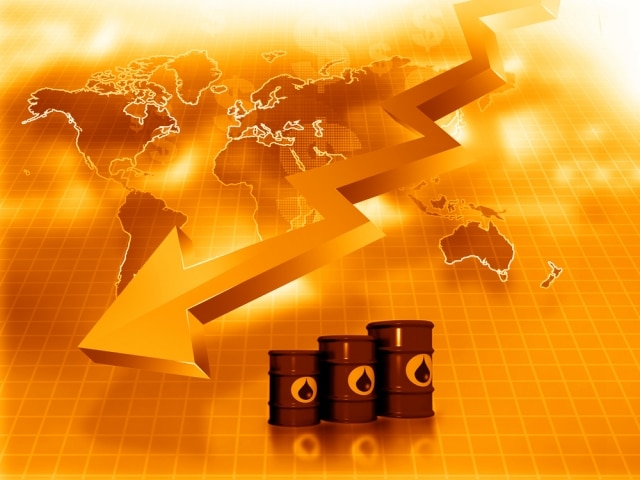This is a guest post by Lukas Ross from Friends of the Earth.
Last week seemed like a bad time to be Big Oil.
As the world’s biggest energy companies announced their quarterly results, billions in profits still managed to disappoint shareholders. ExxonMobil and Chevron both missed their targets, Shell prepared for steep spending cuts, and BP took a well-deserved hosing on news of its latest Deepwater Horizon penalty.
The price of crude, half of what it was a year ago, definitely made for some lower numbers. But does bad news for the oil industry mean good news for the climate? Absolutely not.
Scientists agree that burning carbon isn’t free. Wildfire, drought, and rising sea levels are all un-priced externalities of our fossil fuel economy, and the more we burn the more these costs accumulate. The problem that no one wants to admit is that the world’s biggest oil companies are already responsible for enough emissions that the damage they inflict exceeds their economic value. In absolute terms they are net negative contributors to the global economy.
This was recently confirmed by a working paper from Cambridge University. Using a fairly conservative estimate for the cost of pumping a ton of carbon into the atmosphere, the study looked at the profit margins and emissions for 20 of the biggest oil, gas, and coal companies in the world, including state-owned giants like Gazprom and PetroChina and publicly-traded companies like ExxonMobil and Shell. Although nowhere near as deep in the red as coal, the damage that oil companies exact through carbon emissions (let alone their other public health damages) is greater than their profits in almost every single case. Factoring in the true cost of climate disruption makes it impossible for Big Oil to turn a profit.
Even if you ignore emissions and profits from today, the future value of these companies is based on resources that are mostly unburnable. According to the Carbon Tracker Initiative, keeping warming from reaching catastrophic levels means keeping between 60 and 80 percent of known fossil fuels in the ground.
The carbon bubble is going to burst eventually, and when that happens someone will be left holding the bag for trillions in stranded assets. This is where debates about the economics of oil at $50 or $100 dollars a barrel starts to seem irrelevant—the real value of an unburnable resource is zero.
All of this matters because when oil prices first started to slide, some environmentalists tried to look on the bright side. Tar sands and other extreme energy projects would be less feasible, the argument went, and a carbon tax would be an easier sell politically. But nine months into the plunge the idea of peak oil has never seemed less credible. Tar sands production is still expected to grow over the next 20 years while on the consumer-side lower prices mean more driving and more SUVs. Globally liquid fuel consumption is expected to rise in both 2015 and 2016.
Far from instigating a transition away from fossil fuels, the price drop is poised to make Big Oil even bigger. Eager to cash in on the merger business, Goldman Sachs estimates that oil supermajors like Shell are sitting on about $150 billion that could be used to buy out companies hit hard by low prices, suggesting a new wave of consolidation could be on its way.
Meanwhile, the Blackstone Group, the largest private equity firm in the world, has established specialized funds for investing in distressed oil assets, ensuring that just because one company can’t afford to drill this year doesn’t mean that those reserves are going to stay in the ground.
If you need further proof that low prices can’t help the climate, look at Shell. Even with oil hovering below $50 a barrel, the company’s risky and very expensive bid to invade the Arctic is proceeding, albeit a little behind schedule thanks to the kayaks and the bridge blockades. This is in spite of the fact that the region’s oil reserves must remain 100 percent untouched if we want to have a chance of keeping warming below even two degrees Celsius.
While everyone was watching the kayaks, another piece of Shell news was circulating: its planned mega-merger with the UK-based BG Group. Low prices are a good time to buy, and if the deal gets final approval, Shell will increase its crude and natural gas reserves by 25 and 20 percent respectively. If we suspend disbelief and pretend that this new company will be allowed to dig up all that carbon, the resulting behemoth will be worth $240 billion. It will also be the biggest producer of liquefied natural gas on the planet—an expensive and incredibly energy-intensive product that boasts lifecycle emissions worse than coal.
So don’t worry about Big Oil surviving at $50 a barrel. Worry about the climate for as long as the price is anything above $0.
Image credit: bluebay via Shutterstock.
Subscribe to our newsletter
Stay up to date with DeSmog news and alerts






